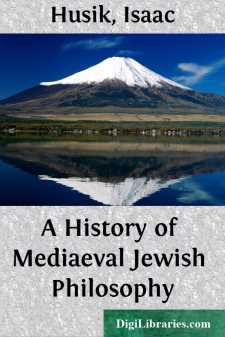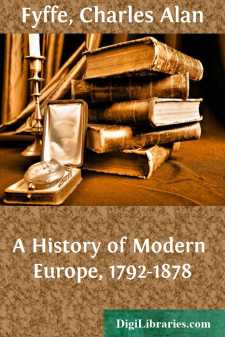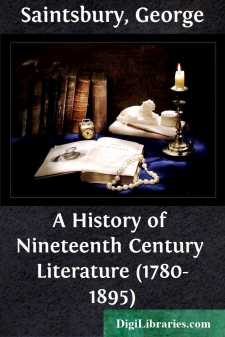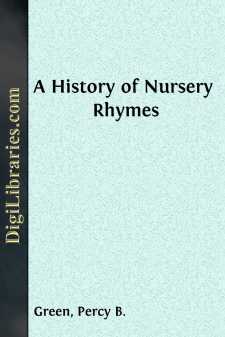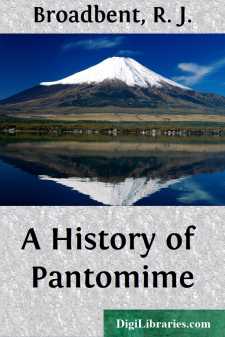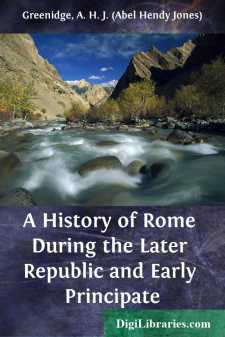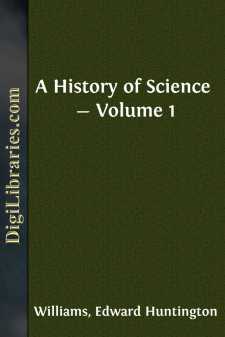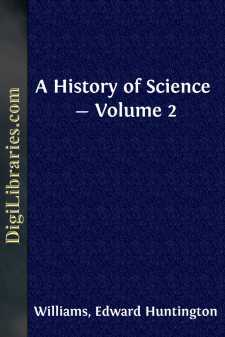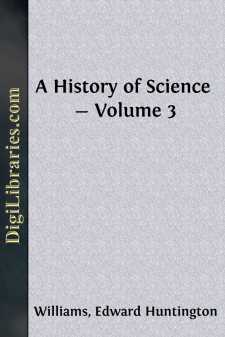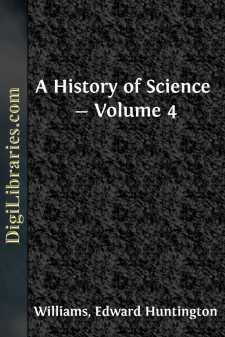Categories
- Antiques & Collectibles 13
- Architecture 36
- Art 48
- Bibles 22
- Biography & Autobiography 813
- Body, Mind & Spirit 142
- Business & Economics 28
- Children's Books 15
- Children's Fiction 12
- Computers 4
- Cooking 94
- Crafts & Hobbies 4
- Drama 346
- Education 46
- Family & Relationships 57
- Fiction 11828
- Games 19
- Gardening 17
- Health & Fitness 34
- History 1377
- House & Home 1
- Humor 147
- Juvenile Fiction 1873
- Juvenile Nonfiction 202
- Language Arts & Disciplines 88
- Law 16
- Literary Collections 686
- Literary Criticism 179
- Mathematics 13
- Medical 41
- Music 40
- Nature 179
- Non-Classifiable 1768
- Performing Arts 7
- Periodicals 1453
- Philosophy 64
- Photography 2
- Poetry 896
- Political Science 203
- Psychology 42
- Reference 154
- Religion 513
- Science 126
- Self-Help 84
- Social Science 81
- Sports & Recreation 34
- Study Aids 3
- Technology & Engineering 59
- Transportation 23
- Travel 463
- True Crime 29
Sort by:
by:
Isaac Husik
PREFACE No excuse is needed for presenting to the English reader a History of Mediæval Jewish Philosophy. The English language, poor enough in books on Jewish history and literature, can boast of scarcely anything at all in the domain of Jewish Philosophy. The Jewish Encyclopedia has no article on Jewish Philosophy, and neither has the eleventh edition of the Encyclopedia Britannica. Hastings'...
more...
Outbreak of the Revolutionary War in 1792-Its immediate causes- Declaration of Pillnitz made and withdrawn-Agitation of the Priests and Emigrants-War Policy of the Gironde-Provocations offered to France by the Powers-State of Central Europe in 1792-The Holy Roman Empire- Austria-Rule of the Hapsburgs-The Reforms of Maria Theresa and Joseph II.-Policy of Leopold II.-Government and Foreign Policy of...
more...
PREFACE In the execution of the present task (which I took over about two years ago from hands worthier than mine, but then more occupied) some difficulties of necessity occurred which did not present themselves to myself when I undertook the volume of Elizabethan Literature, or to my immediate predecessor in grappling with the period between 1660 and 1780. The most obvious and serious of these was the...
more...
by:
Percy B. Green
CHAPTER I. "The scene was savage, but the scene was new." Scientists tell us many marvellous tales, none the less true because marvellous, about the prehistoric past. Like the owl in the preface, they are not discouraged because the starting-point is beyond reach; and we, like the cat, should try to awaken our interest when evidences are presented to us that on first hearing sound like the...
more...
by:
R. J. Broadbent
CHAPTER I. Origin of Pantomime. From the beginning of all time there has been implanted in the human breast the Dramatic instinct full of life and of vigour, and finding undoubtedly its outlet, in the early days of civilization, if not in the Dramatic Art then in the poetry of motion with that necessary and always essential concomitant of both—Pantomime. Indeed, of the Terpsichorean Art, it has been...
more...
CHAPTER I The period of Roman history on which we now enter is, like so many that had preceded it, a period of revolt, directly aimed against the existing conditions of society and, through the means taken to satisfy the fresh wants and to alleviate the suddenly realised, if not suddenly created, miseries of the time, indirectly affecting the structure of the body politic. The difference between the...
more...
I. PREHISTORIC SCIENCE To speak of a prehistoric science may seem like a contradiction of terms. The word prehistoric seems to imply barbarism, while science, clearly enough, seems the outgrowth of civilization; but rightly considered, there is no contradiction. For, on the one hand, man had ceased to be a barbarian long before the beginning of what we call the historical period; and, on the other...
more...
V. GALILEO AND THE NEW PHYSICS After Galileo had felt the strong hand of the Inquisition, in 1632, he was careful to confine his researches, or at least his publications, to topics that seemed free from theological implications. In doing so he reverted to the field of his earliest studies—namely, the field of mechanics; and the Dialoghi delle Nuove Scienze, which he finished in 1636, and which was...
more...
I. THE SUCCESSORS OF NEWTON IN ASTRONOMYHEVELIUS AND HALLEYSTRANGELY enough, the decade immediately following Newton was one of comparative barrenness in scientific progress, the early years of the eighteenth century not being as productive of great astronomers as the later years of the seventeenth, or, for that matter, as the later years of the eighteenth century itself. Several of the prominent...
more...
I. THE PHLOGISTON THEORY IN CHEMISTRY The development of the science of chemistry from the "science" of alchemy is a striking example of the complete revolution in the attitude of observers in the field of science. As has been pointed out in a preceding chapter, the alchemist, having a preconceived idea of how things should be, made all his experiments to prove his preconceived theory; while...
more...


